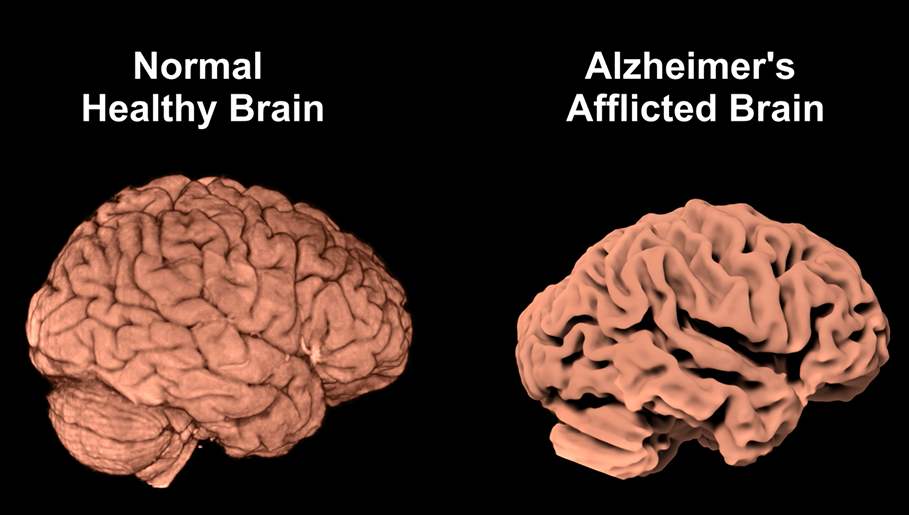Alzheimer’s Disease Overview:
Alzheimer's Disease, a progressive neurodegenerative condition, has become a significant global health concern. With an aging population worldwide, the prevalence of Alzheimer's is expected to rise, posing numerous challenges and opportunities for healthcare professionals, researchers, and caregivers. In this article, we will explore major trends and drivers, segmentation, as well as the opportunities and threats associated with Alzheimer's Disease.
Alzheimer’s Disease Market Competitors Listed Below are Revolutionizing Healthcare with Innovative Diagnostic Inventions:
Blood Tests:
- Covance Research Products Inc.
- Lal Path Labs
- SRL Diagnostics
- Thyrocare Technologies
- Metropolis Healthcare Ltd.
- Cipla Limited
- Sun Pharmaceuticals Industries Ltd.
Medical Imaging:
- Medimaging Solutions
- Siemens AG
- Toshiba Medical Systems
- Sanrad Medical Systems Pvt. Ltd.
- Radiance Imaging System
- Hitachi Ltd.
Browse In-depth Research Report on Alzheimer’s Disease:
https://www.diseaselandscape.com/mental/alzheimers-disease
Major Trends and Drivers:
- Aging Population: One of the primary drivers of Alzheimer's Disease is the global demographic shift towards an older population. As people live longer, the prevalence of Alzheimer's continues to increase. In fact, it is estimated that by 2050, more than 150 million people worldwide will be affected by this disease.
- Advancements in Research: Over the past few decades, there have been significant advancements in our understanding of Alzheimer's Disease. Researchers have made strides in identifying potential biomarkers, risk factors, and therapeutic targets, which offer hope for better diagnostics and treatments.
- Increased Awareness: Growing public awareness about Alzheimer's Disease has led to increased funding for research, improved access to healthcare services, and more compassionate care for those affected.
- Technological Innovations: Technology has played a crucial role in Alzheimer's care. Wearable devices, mobile apps, and telemedicine are becoming valuable tools for early detection, monitoring, and managing the disease.
Alzheimer’s Disease Market Segmentation:
- Clinical Stages: Alzheimer's Disease is often segmented into three main clinical stages – mild, moderate, and severe. Understanding these stages helps healthcare providers tailor care plans and interventions to meet individual needs.
- Genetic Factors: Genetic segmentation involves identifying specific gene mutations or variations that increase the risk of Alzheimer's. This information can inform personalized treatment strategies and risk assessments.
- Biomarkers: Researchers are working on segmenting Alzheimer's based on biomarkers such as amyloid-beta and tau proteins. These biomarkers can aid in early diagnosis and tracking disease progression.
Opportunities:
- Early Detection: Advances in imaging and biomarker research provide opportunities for early detection and intervention. Early diagnosis can lead to better management and potentially slower disease progression.
- Drug Development: The race to find effective Alzheimer's drugs continues. Pharmaceutical companies are investing heavily in research and development, creating opportunities for breakthrough treatments.
- Caregiver Support: The growing population of Alzheimer's patients has led to an increased demand for caregiver support services. This presents opportunities for businesses and organizations to provide innovative solutions and resources.
Threats:
- Healthcare Costs: The long-term healthcare costs associated with Alzheimer's Disease are substantial. As the prevalence of the disease increases, it places a strain on healthcare systems and budgets.
- Stigma: Stigma and misconceptions surrounding Alzheimer's Disease can hinder early diagnosis and access to appropriate care. Educating the public and reducing stigma remains a challenge.
- Lack of Effective Treatments: Despite ongoing research, there is currently no cure for Alzheimer's Disease. This presents a significant threat to the quality of life for affected individuals and their families.
Conclusion:
Alzheimer's Disease is a complex and multifaceted issue that touches the lives of millions worldwide. While it presents significant challenges, it also offers opportunities for improved care, innovative solutions, and advancements in research. Understanding the major trends, drivers, segmentation, and the associated opportunities and threats is crucial for addressing this global health concern. As we continue to learn more about Alzheimer's Disease, there is hope for a future where effective treatments and interventions can significantly improve the lives of those affected.
Browse Through More Mental Health Disorders Research Reports:
For More Related Reports:
Unlocking Relief: Effective Psoriasis Disease Management Strategies
Revolutionizing Parkinson's Disease Care: Global Insights and Innovations
Unlocking the Latest Breakthroughs in Alzheimer's Disease Research: Hope on the Horizon
Rising Against the Odds: Global Insights into Multiple System Atrophy (MSA) Disease
Contact Us:
Disease Landscape Insights LLP
6th Floor, Sr No.207, Office A H 6070 Phase 1
Solitaire Business Hub, Viman Nagar
Pune, Maharashtra, 411014
Email: ajay@diseaselandscape.com
Email: vishal@diseaselandscape.com
Blog: https://www.diseaselandscape.com/blogs
Case Study: https://www.diseaselandscape.com/casestudies





